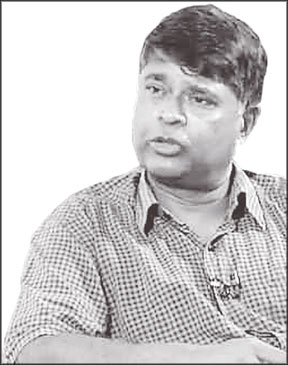The world’s most successful Resettlement programme
 Text of the speech of Prof Rajiva Wijesinha, Text of the speech of Prof Rajiva Wijesinha,
MP on the Votes of the
Ministry of Resettlement
at the Committee Stage of the Budget Debate
Mr Speaker, the work of the Ministry of Resettlement is of crucial
importance, and I am grateful for the opportunity to speak on the
subject. Sri Lanka has implemented perhaps the most successful programme
of Resettlement in the world, and the manner in which we have developed
infrastructural facilities for people who were deprived of all
development for so long should be presented as a model for other
countries in similar situations.
In this context I was saddened by the misleading statements of the
member for Jaffna from Colombo who spoke before me, and was clearly more
concerned about Colombo issues than Resettlement. I will not say that
she misled the House, because I think she has misled herself, but if she
visited areas such as Puthukudiyirippu as often as I have done, she
would realize that what she had said is nonsense. The PTK schools have
been very well equipped, and that at Kachilamadu will benefit from
project funding in a way few schools have done. I could only wish that
she would use some of her decentralized budget to improve actual
education there. I have done this, and vocational training at higher
levels will begin soon in a couple of schools in the Mullaitivu
District, and I could only wish that Jaffna and Colombo representatives
did even half as much for areas that had been so long deprived in the
North.
Human resources development
But perhaps I should not blame her for her ignorance of the ground
situation. That is a field in which government could have done more.
Systematic presentation of what we did, with exposition also of the
financial input of the Sri Lanka government, the creative involvement of
our armed forces, the excellent coordination of the Governors and the
Government Agents in the North and East, should have been highlighted.
It is not too late, I hope, to make use of the reporting tool created by
the United National Office for the Coordination of Humanitarian
Assistance to record Sri Lankan inputs too. This should be done at
Divisional Secretariat level, because that is the unit through which
progress can be seen most clearly.

It is also the unit through which we can register clearly what more
remains to be done. For this reason our records of the past should be
accompanied by informed assessment of the gaps that need to be filled.
That is why, Mr Speaker, we need this Ministry to continue with its
work, though some have argued that, with Resettlement almost completed,
it could be wound up. On the contrary, we must now build on our
achievements, and ensure that those who are resettled, and also those
who remain to be resettled, are fully empowered to contribute to their
own development as well as the development of the country. In this
regard, there is much more that needs to be done with regard to human
resources development, and I hope the new policy developed by the
Ministry responsible for coordination in this field gives adequate
coverage to the needs of the North and East. At meetings of
Reconciliation Committee meetings at Divisional Secretariats in those
areas, I am moved by the needs expressed by so many groups for much
better educational facilities. We must recognize, Mr Speaker, that in
the modern world we must give our youngsters better skills with regard
to English and Maths.
Unless we do more for the rural areas of the North and East, and
indeed of the rest of this country, we will surely produce yet another
generation of disaffected youngsters who express through violence their
resentment at the opportunities of which they are deprived.
Employment opportunities
At the same time, we must also ensure practical training at
appropriate levels in areas deprived of employment opportunities. I am
worried by the lack of Vocational Training Institutes in many areas in
the North and East, and also surprised at the unimaginative nature of
the few courses on offer. Though the Ministry of Foreign Employment has
I think understood the training needs in areas where value can be added
to the labour market, the failure to develop appropriate courses that
include the development of soft skills is a pity. I hope therefore that,
as the Ministry of Resettlement transforms itself to deal with higher
level needs than the basics it has supplied so successfully over the
last few years, it will take on a forceful coordinating role in this
regard too.
Another area in which it must do more is that of providing
psycho-social support for the Resettled. This is an area in which
neglect will redouble suffering, and I have expended much energy in
recent months in drawing attention to the problem and in seeking the
active involvement of the Ministry of Health in promoting the training
that is needed. We need more counselors as well as community support
services. In particular we must provide support for the many single
women and women headed households in the area.
At meetings at Divisional Secretariats, Mr Speaker, the need for
women to have protection against violence is highlighted again and
again. Though I am sorry to say that some critics of government
trivialize the problem by using it to attack our forces, statistic
indicate that, far from the forces being at all responsible, it is
domestic violence that is most prevalent. Alcoholism is rife in those
areas, and indeed elsewhere in the country, and we must ensure guidance
and counseling, and remedial measures where necessary.
Training programmes
This morning I attended a Forum against Gender Based Violence where
such matters were discussed, and we should make use of the assistance
Non-Governmental Organizations can provide in this regard. I am happy
too that the Ministry of Child Development and Women’s Affairs has also
engaged actively in prevention work, through highlighting the remedies
available. Unfortunately the excellent guides that have been produced,
in both Sinhala and Tamil, have not reached all police stations and
social workers in the North and East, and I hope the Resettlement
Ministry will assist with distribution and with training programmes to
make use of them.
Police Women and Children’s Desks have recently been upgraded, and
there is widespread satisfaction now with the work of the police in
these areas. I am also happy to note that, while continuing with their
awareness programmes, the police have also registered the need for
counseling, and initiated training for this through German assistance.
But coordinated efforts are necessary, and this Ministry is ideally
positioned to take the lead.
Another area of concentration with regard to psycho-social support
should be the anguish of those deprived of their loved ones. The Lessons
Learnt and Reconciliation Commission made it clear that support for them
should be given high priority, and I am sorry that the Action Plan did
not lay enough stress on this aspect. I can understand that it felt it
necessary to concentrate more on areas in which unfair criticisms might
be made, but the need to defend ourselves against destabilization should
not blind us to the real needs of the deprived.
I hope therefore that the Ministry will realize that it must ensure
action in this regard, if the relatively satisfactory physical
arrangements it has put in place are not to be undermined by
psychological problems. In this regard it could work through the Women
and Children’s Units that the Ministry of Child Development and Women’s
Affairs has set up in all Divisional Secretariats, and use the services
of Social Service officers and Educational Counsellors and other workers
in the field – but it must ensure proper training, in association with
the Ministry of Health, and reporting mechanisms that limit people in
need falling through the net.
Resettled communities
Mr Speaker, the Ministry could also take the lead in ensuring
supplementation with regard to services in which there are still
inadequacies. I have noted previously how, while there is universal
appreciation of new roads, and electricity connections, and hospitals
and schools, transport still remains a problem. The President has, in
his budget speech, taken note of such problems, and suggested
alternative methods of providing services for those in need. But the
experience of what happened last year, with regard to some excellent
proposals in the budget speech, suggests that someone must take charge
of implementation if good suggestions are not to be forgotten. In this
case, the obvious candidate is this Ministry, given the importance of
such services for resettled communities.
One other area in which, given the central role of farming in these
areas, there should be greater coordination, is that of irrigation and
water supply. I realize coordination in this regard may not be easy,
given that there are a couple of Ministries involved at the Centre,
while provinces too have a role to play in this regard. In Morawewa thus
I was told that problems had to be addressed by the central government
in one area, and by the provincial government in another. In Porativu I
was told of problems with regard to drinking water, whereas the Ministry
of Irrigation felt that existing facilities could not be developed to
satisfy such needs.
Obviously it is the technical experts who must reach decisions on
such matters, but to ensure coordination, as well as attention to the
needs of the people involved, requires the intervention of a
coordinating Ministry. I hope the Ministry of Resettlement will fulfil
this role in the future, given that the emergency relief programmes are
largely done.
At the same time, it must bear in mind the backlog of what are termed
old IDPs. We know that many of them have made new lives for themselves,
but there must be systematic recording of their fates, with provision
for return if this is needed. For this purpose, we need much greater
clarity with regard to laws and practices with regard to land.
Though the Ministry has begun to move swiftly and effectively in this
regard, there must be clear information with regard for instance to the
applicability or otherwise of laws and customs with regard to
prescription, and the Gazette Notice of 1989 which forbade reallocation
of lands vacated because of conflict. And we must make sure that
conflicting claims are dealt with expeditiously as well as fairly.
In this regard the LLRC Action Plan lays down helpful guidelines and,
once the Lands Ministry produces a new generally agreed Circular, there
is no reason why action should be delayed.
We must after all move swiftly towards closure with regard to the
problems caused by conflict, and clarity with regard to legal provisions
is a vital aspect of this.
I have dealt at some length, Mr Speaker, with what remains to be
done, but this should not take away from the signal achievement of this
Ministry and this country. It is precisely because our good name in this
regard should not be sullied that I have suggested even greater
attention to the frosting, as it were, on the excellent cake that this
Ministry has produced. |







